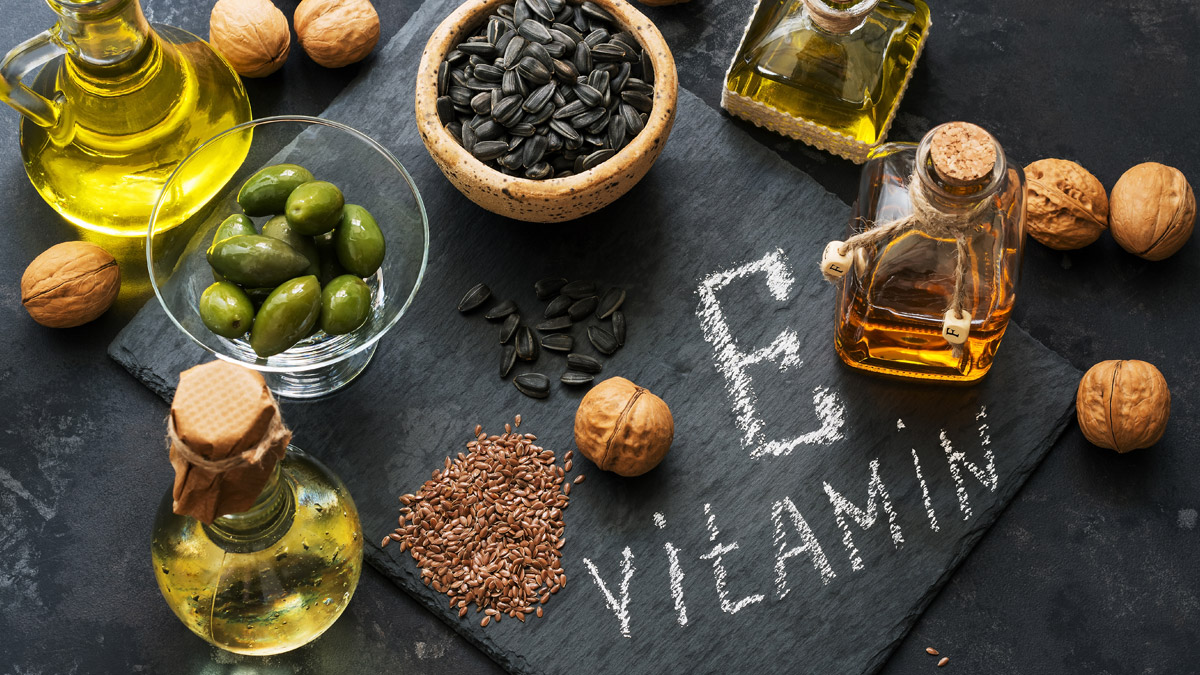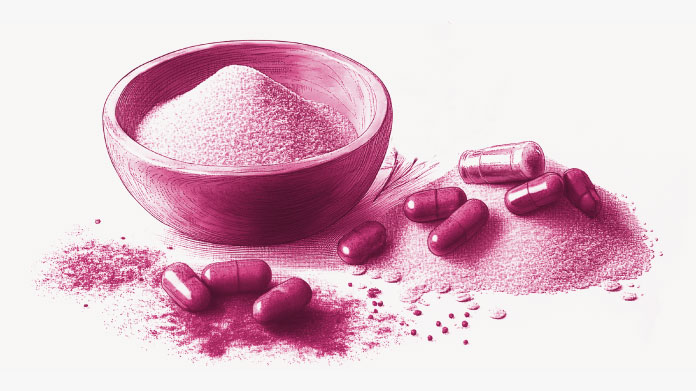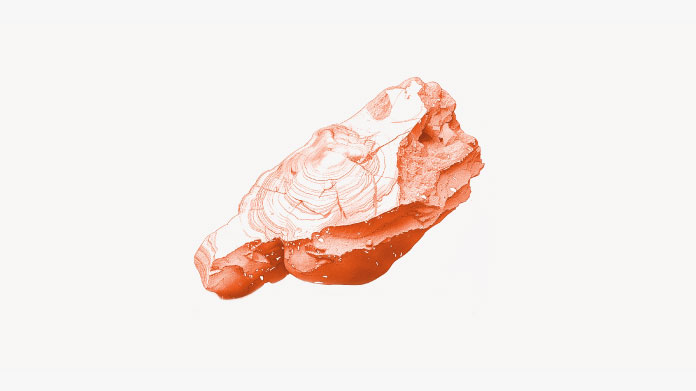Top 10 foods rich in vitamin E
Vitamin E deficiency is rare, but you should still focus on these great foods to ensure that you’re getting enough vitamin E. Here are our top 10 foods rich in vitamin E.

Wheat germ oil
With nearly 150 mg of vitamin E per 100 g, wheat germ oil tops all food categories in vitamin E content!
How? Use wheat germ oil instead of another oil when you cook. Wheat germ oil supplements (in capsules) are also a good option.
Nuts
Nuts are very interesting for their high content of vitamin E (over 15 mg per 100 g), this vitamin with powerful antioxidant properties. Nuts also provide minerals and oligo-elements (potassium, phosphorus, magnesium, calcium, and iron).
How? Whole, chopped, or powdered, nuts are versatile and you can easily add them many dishes.
Sardines
Sardines are rich in vitamin E, but also in vitamins B and D, selenium, calcium, and phosphorus. Sardines are also interesting because they provide omega-3, polyunsaturated fats that are good for the heart.
How? Whether fresh or canned, eat sardines whole instead of filleted. Whole sardines still have bones, which are rich in calcium.
Almonds
Almonds provide a good amount of vitamin E (just under 15 mg per 100 g), and are also rich in proteins and soluble fibers.
How? Choose unsalted or slivered almonds, and look for fresh almonds, which are available in September and October.
Margarine
Quality margarines provide beneficial amounts of vitamin E without saturated fatty acids that are bad for cardiovascular health (check food labels for saturated fatty acids).
How? Spread margarine on a slice of bread, but remember that margarine is unsuitable for cooking.
Olive oil
A tablespoon of extra virgin olive oil provides half of the vitamin E that your body needs each day.
How? Choose extra virgin olive oils, which are better additions to your diet.
Avocados
Avocados provide significant amounts of vitamin E, but more importantly, they offer a beneficial vitamin E/polyunsaturated fatty acid ratio, which prevents oxidation of essential fatty acids.
How? It’s preferable to eat avocados by themselves (though freshly mashed avocado can replace butter in sandwiches), without vinaigrette or mayonnaise, which are too rich in fat.
Dried apricots
With 4 mg of vitamin E per 100 g, dried apricots offer an alternative to the oils and the oleaginous fruits typically recommended for providing vitamin E.
How? Finely chopped, dried apricots can be sprinkled on salads or in yogurt, added to tajines, stir fries, etc. You can also snack on 1 or 2 dried apricots.
Eggs
In addition to vitamins A, D, B2, B5, B9 and B12, eggs provide vitamin E (1.2 mg per 100 g). They are also an excellent source of very high-quality proteins.
How? Eat eggs soft- or hard-boiled to avoid the added fats required to cook them in a pan.
Spinach
With 1 -2 mg of vitamin E per 100 g, spinach joins asparagus, watercress, and even broccoli as one of the vegetables richest in vitamin E. This group offers another advantage because, unlike oils, vegetables can be consumed in large amounts.
How? Vitamin E is unaffected by cooking, so you can prepare vegetables as you prefer. On the other hand, vegetables are sensitive to light, so store them in a dark place, and be sure to eat vegetables soon after buying them.
2 Days
repeat customer
recommended by my doctor. easy to create an account. Discounts and specials are appreciated. packaging and delivery is dependable. Capsules easy to digest. I've had some some capsules and tablets that are broken inside their bottles.
Kokee
7 Days
Order was shipped on time and packaged…Wonderful Jobs!
Order was shipped on time and packaged excellently.
DMHoge
13 Days
great products and prices
great products and prices
Marie
19 Days
Easy to navigate site
Easy to navigate site, had what I was searching for, good price. easy order-check out
James Tucker
25 Days
My skin is clearing up nicely!
Pretty good for my skin so far.
Christian
27 Days
The new packaging is excellent
The new packaging is excellent - finally! No more squashed boxes and torn envelopes.
GORAN
28 Days
Great Product
Great Product
Larry Garrett
32 Days
Quick shipping
Quick shipping; good price. No issues!
Mary McCarty
34 Days
Thr product is very good and is helping…
Thr product is very good and is helping me on my health. Then is always on time
LUGO Luz
36 Days
Buying was fine
Buying was fine. I had problems with the website not recognizing my login info, and had to call to get it fixed. Other than that, everything was good.
David S. Clark
37 Days
Your super maca and super ginseng are…phenomenal
Your super maca and super ginseng are phenomenal supplements that compliment each other when taking them together. Fantastic feeling of well-being and lots of mid day energy without the crash.
Keith Mason
39 Days
I have had amazing results with every…
I have had amazing results with every supplement I've purchased. I am extremely satisfied with this company
kirstin Torres
39 Days
Fine products
Fine products . They are on the leading edge of online supplements. The only issue -so far-is they sometime run out of subscription items.
Jason Argos
42 Days
The ordering process is very user…
The ordering process is very user friendly and the products always come in a timely manner.
CARTER Rhonda
43 Days
The price for Dr
The price for Dr. Pero's AC-11 is reasonable and in line with his views. (my former colleague). Keep it pure.
CAMPBELL Clayton




